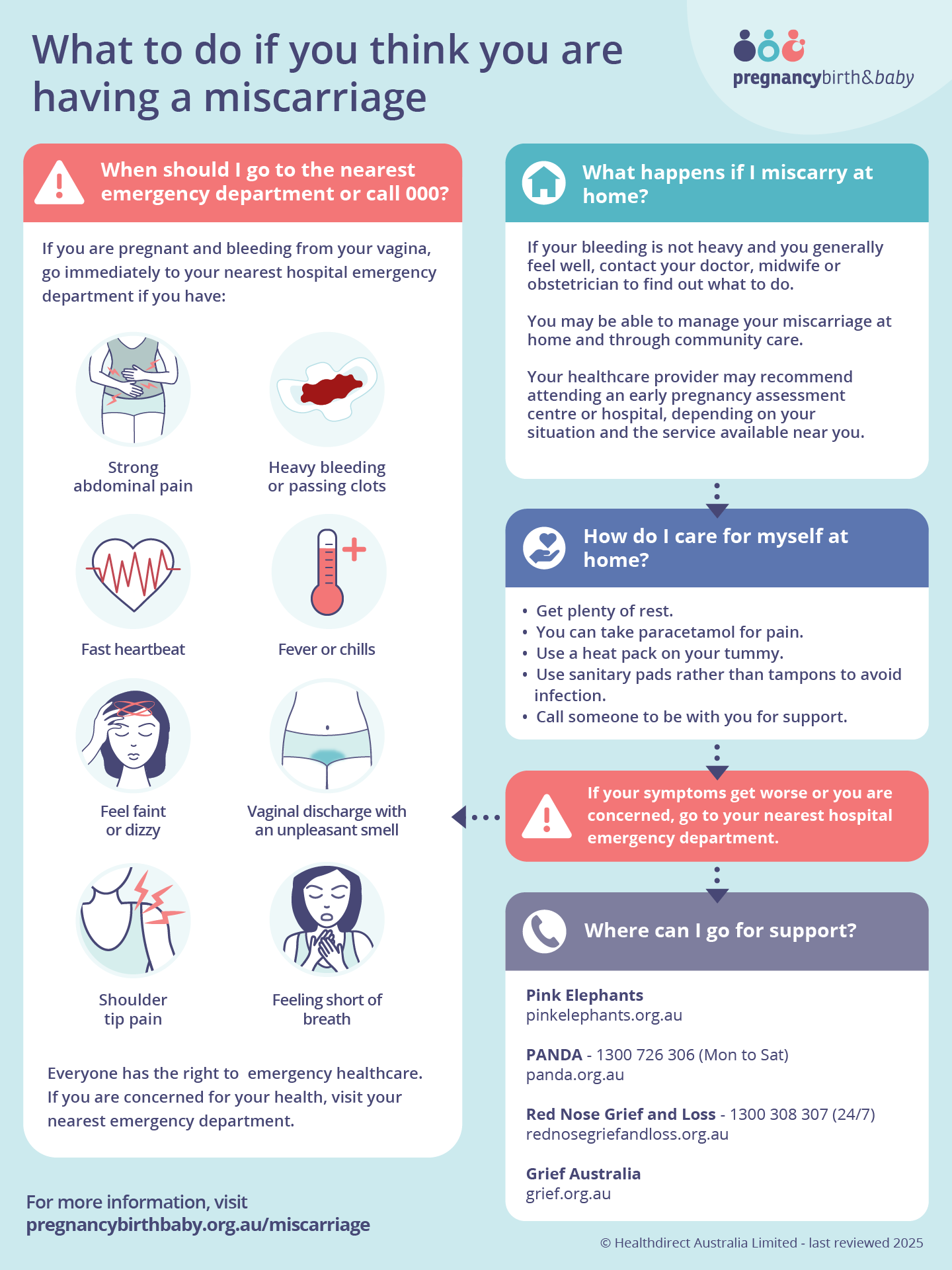Guide on what to do if you are having a miscarriage
4-minute read

View text version of infographic
What to do if you think you are having a miscarriage
When should I go to the nearest emergency department or call 000?
If you are pregnant and bleeding from your vagina, go immediately to your nearest hospital emergency department if you have:
- strong abdominal pain
- heavy bleeding or passing large clots
- pain in your shoulder tip
- a fever or chills
- dizziness or feel faint
- vaginal discharge with an unpleasant smell
- shortness of breath or a fast heartbeat
Everyone has the right to emergency healthcare. If you are concerned for your health, visit your nearest emergency department.
What happens if I miscarry at home?
If your bleeding is not heavy and you generally feel well, contact your doctor, midwife or obstetrician to find out what to do.
You may be able to manage your miscarriage at home and through community care.
Your healthcare provider may recommend attending an early pregnancy assessment centre or hospital, depending on your situation and the service available near you.
How do I care for myself at home?
- Get plenty of rest.
- You can take paracetamol for pain.
- Use a heat pack on your tummy.
- Use sanitary pads rather than tampons to avoid infection.
- Call someone to be with you for support.
If your symptoms get worse or you are concerned, go to your nearest hospital emergency department.
Where can I go for support?
Pink Elephants Support Network
pinkelephants.org.au
PANDA - 1300 726 306 (Mon to Sat)
panda.org.au
Red Nose Grief and Loss - 1300 308 307 (24/7)
rednosegriefandloss.org.au
Grief Australia
grief.org.au
For more information, visit pregnancybirthbaby.org.au/miscarriage
Want more like this?
See more guides and infographics from Pregnancy, Birth and Baby.
Learn more here about the development and quality assurance of healthdirect content.
Last reviewed: June 2025

